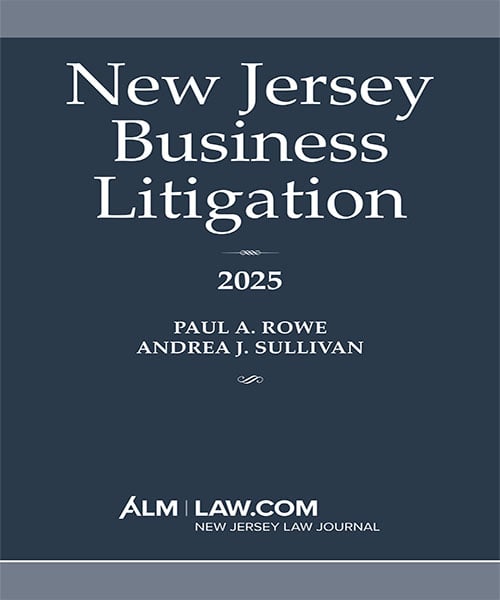0 results for '*'

The claims made in Rosetta Stone's trademark suit against Google should be all too familiar by now to the search company. In its complaint, filed last week in the Eastern District of Virginia by Gibson, Dunn & Crutcher, Rosetta Stone alleges that Google is free-riding off of its brand, by illegally selling to third parties the right to use Rosetta Stone marks for online advertising.

Prevailing Claimant Can't Use Workers' Comp Findings in Title VII Case
A worker who claims sexual harassment and wins a ruling from a Workers' Compensation judge granting her benefits on the basis of a mental disability cannot later use those findings in a jury trial of her Title VII claim, a federal judge in Pennsylvania ruled. The judge also ruled that any mention to the jury of the hearings before the Workers' Compensation judge would have an "unduly prejudicial" effect.
A New Twist on Municipal Redevelopment Powers
Although New Jersey's Abandoned Properties Rehabilitation Act may have been passed with good intentions, shortcomings in the language of the act and the possibilities it provides to municipalities to take a property owner's land without complying with federal and state constitutional mandates, render the act fundamentally flawed.
What's Next? Lamberth Holds Meeting to Discuss Pending Gitmo Cases
The Supreme Court's ruling earlier this month in Boumediene v. Bush injected life into nearly 200 pending habeas cases and cleared the way for dozens more. The justices left it to the U.S. District Court for the District of Columbia to shape the process, and last week, Chief U.S. District Judge Royce Lamberth took the first step.View more book results for the query "*"


Justices Slam Nation's Patent System
In Supreme Court arguments Tuesday, it was clear nobody was happy with the Federal Circuit's three-part test.

Deciding Post-Confirmation Taxes of Chapter 11 Plans
Edward A. Smith, a partner with Venable LLP, writes that while it is the narrower reading of �505(a) that represents the more prevalent view of the bankruptcy courts that have faced the issue, bankruptcy court jurisdiction over post-confirmation tax liabilities remains an open issue.
Mental Health Professionals in Custody Cases
Robert Z. Dobrish, a partner at Dobrish & Wrubel, writes that custody cases are extremely difficult cases to handle from a lawyer's perspective. The issues are imprecise, the law is not clear, the stakes are high, the clients have intense feelings. The legal system operates slowly.
Trending Stories
- 1'A Death Sentence for TikTok'?: Litigators and Experts Weigh Impact of Potential Ban on Creators and Data Privacy
- 2Bribery Case Against Former Lt. Gov. Brian Benjamin Is Dropped
- 3‘Extremely Disturbing’: AI Firms Face Class Action by ‘Taskers’ Exposed to Traumatic Content
- 4State Appeals Court Revives BraunHagey Lawsuit Alleging $4.2M Unlawful Wire to China
- 5Invoking Trump, AG Bonta Reminds Lawyers of Duties to Noncitizens in Plea Dealing
Featured Firms
Law Offices of Gary Martin Hays & Associates, P.C.
(470) 294-1674
Law Offices of Mark E. Salomone
(857) 444-6468
Smith & Hassler
(713) 739-1250
More from ALM
Resources

Aligning Client Needs with Lawyer Growth and Profitability
Brought to you by BigHand
Download Now

Technology to Make E-Discovery Smarter, Not Harder
Brought to you by Nuix
Download Now

Does Generative AI Have the Power to Transform Legal Services?
Brought to you by HaystackID
Download Now

How This Personal Injury Firm Reduced Client Intake Time by 80%
Brought to you by PracticePanther
Download Now



